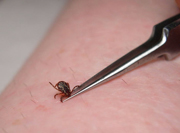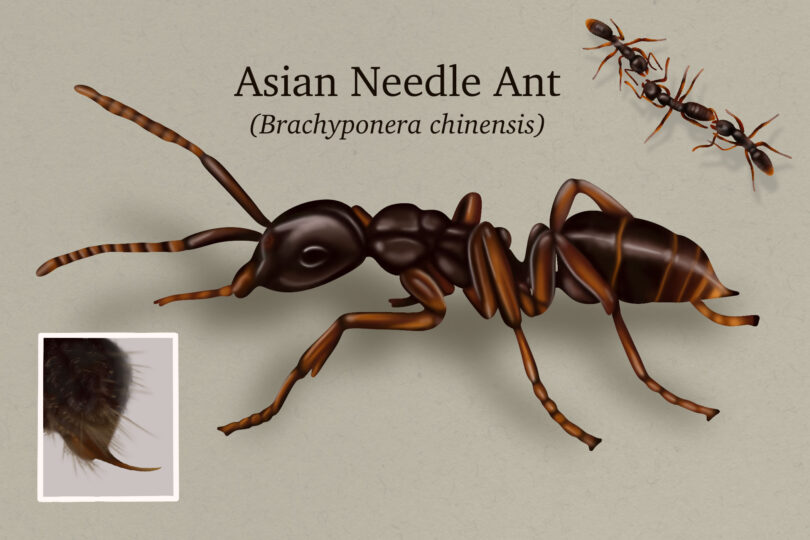Ticks make most people squeamish.No one likes the idea of something crawling on them, and I do not know anyone who wants to be a source of food.
Luckily, there are things you can do to help reduce you and your pets’ chances of having a close encounter with a tick.
Most tick control measures don’t involve picking up a sprayer and spraying insecticide. Spraying should be used as just one part of a control program. As a University of Georgia Cooperative Extension agent, I recommend chemical applications to people all the time, but sometimes it's worth taking a step back and figuring out why you are having a problem with pests.
In many cases all you have to do is think about what an insect, or in a tick’s case an arachnid, needs to survive. All need food, water and shelter. Take away one or more of these requirements and you will solve your problem.
One of the worse summertime jobs is cutting grass, but we do it so our kids have a safe and fun place to play. Ticks prefer tall vegetation, like uncut grass. When they feel movement and sense the presence of an animal, they drop off the grass and onto their host. Keeping your lawn short is a good way to reduce habitat for ticks.
Another good way to reduce your chance of becoming a tick’s meal is to prevent access to your skin. Even though it is hot, wear pants when you are going to be in the woods or in or other prime, tick real estate. Tape or tuck in pant legs inside your boots so the ticks have no easy way of getting on you.
You can also use bug repellents to help stave off ticks. Spray areas that are especially attractive to ticks like your ankle and beltline. Speaking of using repellents, make sure that your pets are covered with flea and tick control chemicals. These chemicals are safe for your pets and family, and provide excellent control.
Make it a habit to look for ticks on your body and your children. If you do end up with a tick, take a pair of tweezers and remove it by the head. Then wash the bite with soap and water and write down on a calendar when you received the tick bite. This may help your doctor diagnose a disease if you become sick.
Also do not forget your pets. Simply run your hands through their coats, feel for the ticks and remove them.
For more information on controlling ticks, search the UGA Extension publication website at www.caes.uga.edu/publications/ or call your local agent at 1-800-ASK-UGA1.








